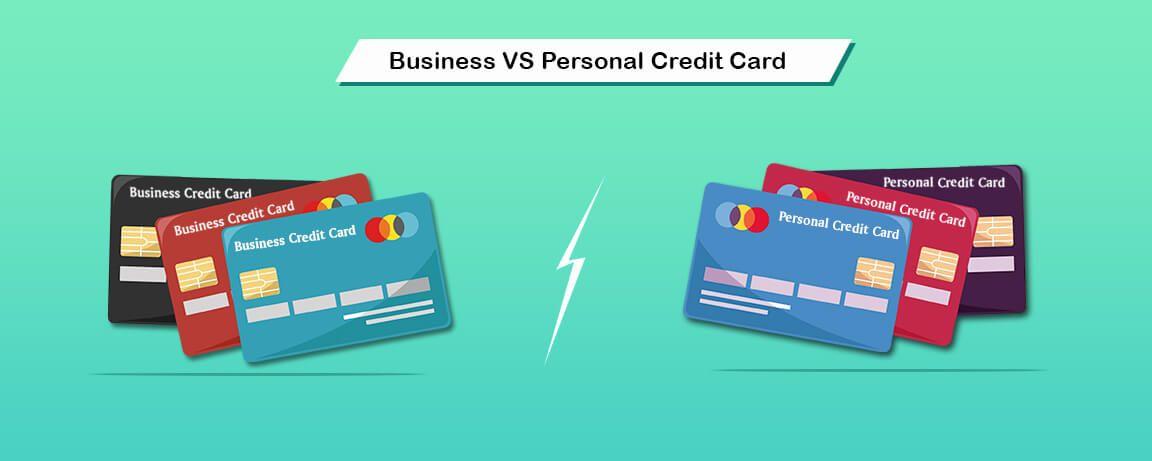What’s the Difference between a Business Credit Card and a Personal Credit Card?
In the recent past, Credit Cards have not only become a great way of enjoying cashless purchases both on the ground, as well as online but, have also become a go-to medium for many patrons to enjoy numerous rewards, discounts, offers, and cashbacks. Then again, Credit Cards are also being used to build better credit repayment, especially for those people who either have no credit score or have a particularly poor one.
While most people are only aware of the Personal Credit Cards, there is in fact, another category of cards that need your due diligence – Business Credit Cards. As indicated by the name, Personal Credit Cards are the Types of Credit Cards that are meant for the expenses of an individual or a family, wherein utility, grocery, shopping, and entertainment take center stage. On the other hand, business Credit Cards are meant to be used by business owners and are primarily used for meeting the operating expenses of the enterprise.
Wondering why is it that you ought to have two distinct cards? The answer lies in the fact that the two separate cards can help you work towards building your business credit score, as well as your credit score simultaneously. Moreover, having two cards will ensure efficient management of the expenses on each side, and will help you keep a tab on them.
Now that you know the significance of having both, a personal as well as a business Credit Card, let us chalk out the differences between the two.
1. Eligibility Criteria
To be eligible for a personal Credit Card, all you need to do is furnish proof of your identity and state your source of income. However, when it comes to getting a business Credit Card, you are required to have a legitimate business. Moreover, the Credit Card issuer would want to know the life-span of your business, along with its revenue and expenses.
Of course, in both cases, the bank or Credit Card company will check your personal credit history. This will be the case, even if you have a well-defined credit history for your business. Hence, it will be in your interest to pre-check your credit score, and only if it looks good should you go ahead and apply for a business credit card.
2. Rewards
Personal credit card offers can be availed of reward points on expenses of a personal nature such as utility bills, groceries, online shopping, dining out, watching movies, and traveling amongst others. Business Credit Cards, on the other hand, are designed to offer benefits that can help you save money on your day-to-day business expenses. The rewards on such cards are offered on office supply bills, telecom bills, shipping and transportation, media advertising, computers, and so on.
As is evident, having a business card can help you reap benefits that are much more relevant to the functioning of your enterprise, something that a personal Credit Card cannot offer.
3. Ancillary Benefits
The benefits gained from personal Credit Cards are confined to reward points, discounts, and cashback. However, when it comes to business cards, most banks offer ancillary benefits such as an expense monitoring tool, which helps you to keep a tab on the expenses, and even set a spending limit. Besides, some cards also enable you to upload receipts for various expenses, thus helping in the efficient management of your business accounts.
4. Credit Limit
Since business owners often have a higher capital need than general consumers, business credit cards offer increased credit limits. This makes it easier for businesses to manage their everyday operating expenses. Some cards don’t have any credit limits and can be used on your own accord. In such cases, however, you are required to pay your bills in full, every single month.
5. Credit Reporting
Personal Credit Cards and business credit cards differ in the way your account activity is reported. In the case of the former, the reports are sent to consumer credit bureaus which include:
- Equifax
- TransUnion CIBIL
- Experian
- Highmark
On the other hand, the account activity for business credit cards is reported to commercial credit bureaus which include:
- Equifax
- CRIF Highmark
In some cases, your business card issuer may also notify the activity to the consumer bureau. If so, a blow on your business credit may also result in a subsequent decrease in your credit score. Hence, it is strongly advised to check the reporting regulations with your card issuer, before applying for one.
What Should You Opt for?
While there is no definitive answer to this question, you must make a decision based on your needs and references. While it is best to enjoy both, personal as well as business credit card offers since it can help you in keeping the expenses separate thus helping you in the efficient calculation of taxes, you should only take as many cards as you can manage efficiently. Many people opt for multiple cards in both categories to reap the benefits that come with each card, but you must understand that this practice, if not managed effectively, can spiral you into a debt trap rather easily.
Regardless of the choice you make, you must ensure that your expenses are separate from your business expenses and that you try and pay all your Credit Card bills on time!
